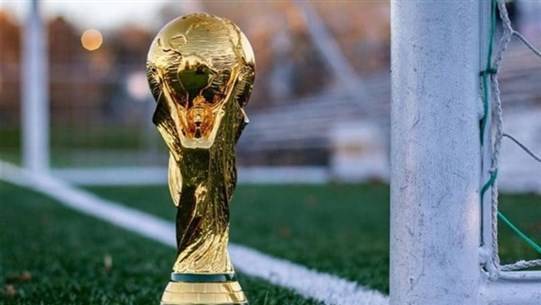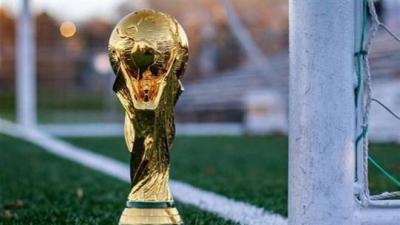What politics have divided in Lebanon will be united by the World Cup. All fans have prepared their flags, and the market for flags has flourished, with many vendors setting up stalls along the roads in Nabatiyeh and the villages. "The turnout is large," says Abu Ali Rayhan, the owner of one of the stalls, noting that "prices vary from one flag to another depending on the quality," while emphasizing that "the Chinese flags are flooding the markets, and fabric flags are expensive, but the economic situation hasn't stopped anyone from buying a flag, as people are eagerly awaiting the season." Alongside the flags, sports banners have been raised on balconies, and football fans have been actively purchasing their teams' apparel in preparation for heading to cafés to watch the most important sporting event in the world.
So what does the scene look like in the cafés? Hassan Bsar, the owner of a café in the Nabatiyeh area, is eagerly anticipating the World Cup. He asserts that it is "a golden opportunity to stimulate the economy, as everyone will flock to cafés to watch World Cup matches, since few can afford a private subscription for the World Cup." Hassan has implemented a discount system to attract football fans to his café, preparing for the event by getting the flags and all the details of the World Cup ready. He is certain that "most viewers will focus on having coffee or tea and shisha," the latter being the highlight of the gatherings, priced at no more than 45,000 Lira, and offering "a free cup of coffee with every shisha." He aims to attract as many customers as possible, stating, "The World Cup is an economic opportunity that does not come around often."
Restaurants and cafés in Nabatiyeh are gearing up for the World Cup, considering it a golden economic opportunity to revive their stagnant business and bring back momentum. The sporting event unites everyone around it, away from politics and the country's crises, being the only event that Lebanon interacts with as a source of "happiness," according to Bassam Youssef, who is determined to watch his German team in one of the popular cafés in the area, after agreeing with his friends to meet daily to follow the World Cup matches. He is not concerned about the cost of watching, saying, "A cup of Nescafé is enough, which is 40,000 Lira," a daily expense he is willing to pay, noting that he usually visits the café only once a week, "but football has its necessities."
Yassine Jumaa, owner of a café in the area, does not hide his expectations of high turnout to watch the World Cup matches. He has set up a large screen and adorned it with flags of the participating countries, stating that he will not raise prices, as his main goal is to achieve acceptable profits that compensate for the losses of the season. He points out that most viewers will be young people, thus their focus will be on shisha, the main competitor to the World Cup, with prices ranging from 45,000 to 80,000 Lira, depending on the restaurant or café. He affirms that the matches have no flavor without shisha, prompting him to increase the number of shishas in his café and to offer Arabic coffee for a special touch.
Café owners are betting on the lack of subscriptions to channels in homes, relying on a season that could be very profitable, especially since the World Cup is coming during difficult economic conditions in which people are seeking a chance for joy. Consequently, popular cafés, in particular, are expected to become unprecedented hubs of attraction, as "the World Cup brings everyone together," as Fadi Daher asserts, who will follow his Brazilian team in a café in his hometown of Houmine, where all his friends will gather, each cheering for their own team.
Undoubtedly, competition will be intense among fans, but it will not reach the levels of intensity seen in Lebanese politics. There will be lighthearted banter throughout every match, dividing young people between the two rival teams, yet the cheering will maintain a sporting spirit without slipping into issues due to the loss of one team or another.




